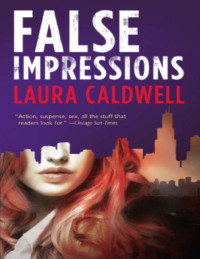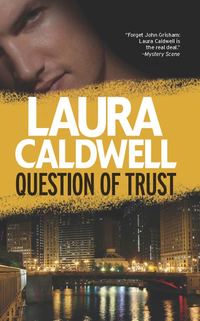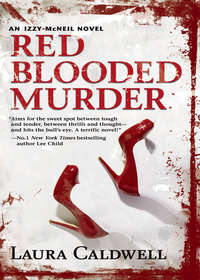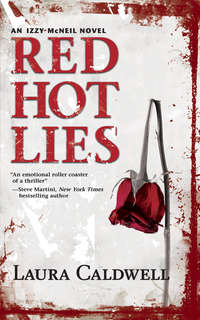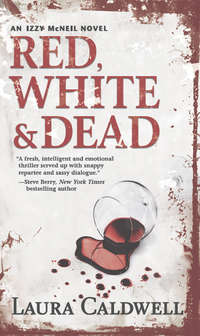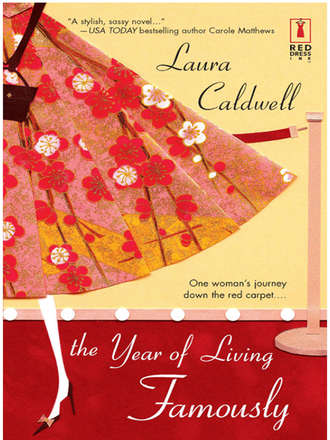
Полная версия
The Year Of Living Famously
“Love,” Declan said, “you’ve got to learn how to drive.”
“I will…someday.”
We walked for a few minutes in silence, the pier a short distance ahead of us, the sand cool under our feet.
Declan suddenly stopped and turned to me. He took both my hands in his; he looked very serious, which freaked me out.
“What?” I said.
“Kyra Felis,” he said somberly. “I have a question for you.”
My heart began to pound. “What?” I repeated.
He dropped on one knee. He kissed my hand.
“Kyra,” he said. He took a deep breath. “Will you have me as your driving teacher? Will you trust me enough to put your adorable bum on the driver’s seat of my car?”
I burst into laughter. “I don’t know. I haven’t known you all that long, and I don’t know if I’m ready. It’s a big decision and—”
He stood and interrupted me with a big, Fred Astaire–like dip. “We can do it. We can make this work.”
“The gas is on the right, Kyra! You have to keep your foot on it to make the car move!”
I shot him a murderous look, although I couldn’t blame him for yelling. I tried again. I stepped tentatively on the gas, but when the car shot forward, it scared the hell out of me, and I hit the brakes. Once more, gas…whoo, that weird power of the car lurching, tying my stomach in knots…and I pounced on the brakes.
I put the car in park, peeled away my death grip on the steering wheel and dropped my head. We were in a parking lot of a vacant strip mall, the only place Declan could find where I might attempt to drive and not maim the few pedestrians. I snuck a look at Dec. His face was flushed, his hair a little sweaty and pushed up in spikes. He looked, as he would put it, “shaggered.”
“I don’t think I can do this,” I said.
Dec didn’t look as if he thought I could do it, either, but he said, “Of course you can, love. If I can learn to drive on the right side of the road, you can learn to simply drive. Now let’s just sit here a bit and review the controls.” By that time, we’d “reviewed the controls” at least thirty times, but I was grateful for a task I could handle.
“What’s this?” He pointed to the dash.
“The gas gauge. It’s half-full.”
“Good, and this?”
He kept pointing to various instruments, and I answered dutifully. I knew what he was doing. He was trying to build up my confidence by mentioning things I knew and could answer. He didn’t understand that while I could also probably learn the controls of the space station, it didn’t mean I was ready to blast off.
“Okay, we’re trying again,” he said. He breathed out heavily, as if he was preparing to pick up a large couch and move it to a third-floor apartment.
I lurched and braked down the street, the car bucking like a rodeo bull.
“Get her to bloody go!” Declan yelled.
You can do this, I said to myself. Just do it.
With a burst of determination, I punched down on the gas pedal with my foot. The car shot forward in one swoop.
“Whoa!” Declan said. “Not so fast!”
Suddenly, looming in front of me was a yellow metal garbage can left too far into the street. I told my arms to turn the wheel, but I reacted too slowly, and the car hit the can with a loud thunk, sending it soaring into the air like a mini blimp.
I squealed to a halt as the can landed with a clatter behind the car.
With trepidation, I glanced at Declan. He looked as though he wanted to cry
“In my defense,” I said, “that yellow was a hideous color.”
He moaned. “Let’s go again.”
I sped forward in short bursts and halted with too much force all afternoon until, little by little, I could withstand the power of the moving car. Four hours later, I drove one block up the street, turned around and drove another block back to the parking lot. We practiced all the next day, too, when I advanced to going through stoplights and backing into parking spaces (I’m sure our neighbor didn’t need that ugly planter in the shape of a grizzly bear. Why put it in the parking lot, anyway?).
Two weeks later, I took my driver’s license test. In the hopes of flirting with the tester for special consideration, I wore a pink tulip skirt and gauzy white blouse. Unfortunately, my tester was a mean little woman named Barbara who used to be a gym teacher and still wore a whistle around her neck. Anytime I made what she called “an infraction” she blew the whistle. Lucky for me, and to Barbara’s chagrin, I passed by a hair. When I came into the waiting room, Declan was there, pacing like an expectant father.
“I got it!” I said. I waved my little plastic rectangle of a license, on which, I must say, was a rather fetching photo of me.
When we pulled into our parking lot at home, there was a car in our spot. A tiny, old, rusted, green convertible. I couldn’t have told you what type it was at the time; I still wasn’t so good at judging the makes or models of automobiles.
“Should I call someone?” I said, staring at the car, annoyed. I wanted to get inside our apartment and celebrate. I wanted a glass of wine or three, and yet here was this car, delaying my intended intoxication.
I glanced at Dec, who was staring at the car with a strangely fond expression. He reached into his pocket and took out a set of keys I’d never seen before.
“It’s for you,” he said.
“That car?”
He nodded.
“You got me a car?”
He smiled.
“We can’t afford that.”
“I got my check for Tied Up.” Tied Up was the movie Dec had shot that summer in Manhattan, but I knew that money had been earmarked for other things—paying off credit card bills, new head shots—and I told him that.
“That can wait,” he said. “My colleen has got to have her own wheels.”
I glanced back at the car. It now looked not so much old and rusted as it did charmingly antique, not so much tiny as it did delicate, and not so much green as it did jade.
I shrieked with delight, then crawled all over my new toy. Dec stood by, beaming.
“Wait right here,” he said after a few minutes.
He emerged from the house a moment later with two bottles of beer, and we sat inside my new car, top down, and toasted to us.
chapter 9
After a few weeks in L.A., the weather shuddered and stopped. Fog blew in from the ocean. It looked like wet smoke, and became thicker and thicker until I could only hear the waves. Next came a misty rain, skies that hung low and looked like powdered ash. Everyone I met commented on how bizarre the weather was, how it was sure to change, but it dug in its heels and clung to Los Angeles like an unwanted lover who refuses to give up.
The lack of sun seemed to steal some of the magic from my everyday life, although I suppose it could have been other factors, too. Declan had been cast in a voice-over role in an animated film that required him to act the part, at least vocally, of a sprightly Scottish chicken. He was so excited when he got the call from his agent.
“Kyr! Kyr! I got it!” he said, holding his cell phone aloft like a trophy.
“The Edith Wharton movie?” My voice matched his glee, although I suspected that Dec had auditioned for the adaptation of Old New York more for me than himself.
“No, no!” he said. “MacDaddy.”
“The one where you’d have to be a hen?”
“A rooster! The main rooster.”
“Well, congrats, baby!” I hugged him. Absently, I thought about telling Emmie and Margaux that my new boyfriend had a part as a barnyard animal.
I must not have appeared suitably impressed, because he said, “Kyr, this is massive. It’s a Disney film. You’ve seen Shrek and Anastasia, haven’t you? Lots of adults love them.”
“Yeah, absolutely,” I said. I was sure that the only adults who “loved” those movies were parents who knew they had to see the movie thirty more times before their kids left for college and were, therefore, deluding themselves in order to stay sane.
The role seemed somehow ridiculous, and every morning as I watched Declan go through his vocal exercises, chanting, “O-hello-oooo, Om, om om,” I found it more silly. It seemed beneath his talents, or at least the talents I assumed he had. But Max, his agent, had convinced Dec that this was a plum assignment, and Bobby, when I asked him, agreed. So I kept out of it, kissing Dec before he left, trying not to imagine him as a chicken. And then the whole dreary, powdered-ash day would open before me. I signed up with two temp agencies, but with all of the actors in town who also wanted temp work I rarely got any calls.
I tried to sleep. I love sleep. Have I mentioned that before? And I used to be very good at it. In New York, if I wanted, I could sleep for an entire day. I’ve always been that kind of person, even with the horns blaring outside my window in Manhattan, the scrape of metal cans in the alley. But in L.A., despite the crappy weather, I was restless.
I talked to Bobby nearly every day. He called me when he was having his morning coffee at the office, and I phoned him incessantly throughout the rest of the day for no reason, except that I was bored.
“Kyr, take up exercise or something,” Bobby said, exasperated with me one afternoon. “Your metabolism is bound to catch up with you, and you’re going to gain two hundred pounds.”
And so I started jogging. Another concession to the L.A. lifestyle. I’d never really worked out before. In New York, walking around the city and running after cabs was enough exercise. But it was hard to live near the Venice boardwalk with its in-line skaters and weight lifters and runners without joining them once in a while. I ran from our house down Washington, even in the rain, and then let myself get lost around the little side streets and the canals of Venice. On the way home, I usually ran along the sand. I watched the surfers, all of them in black bodysuits, bobbing on the water like a pack of beetles.
Jogging allowed me to explore Venice, an area I came to love, but I wasn’t very comfortable with the other places in L.A. There were too many people in the same biz, struggling for the same jobs. There was too much flesh, too much perfect skin, too many full heads of hair. But I liked Venice. It reminded me of New York—a ragtag amalgamation of people. Poor and rich; writers, artists and lawyers.
Still, I had too much time on my hands. Emmie told me I should sketch, that I should work on my designs, but new ideas, images, hemlines and sleeves stayed hidden from me.
I knew Emmie was right, though. Even if inspiration eluded me, I needed to find a new pattern maker, a new cutter, a new manufacturer for my designs. It’s not particularly difficult to locate these people. They are there for hire. Whether you ever sell your designs after they make them is irrelevant. But it’s important that you trust them, and that they don’t rob you blind.
I made a few calls to Manhattan and soon I had appointments in L.A.’s fashion district with a host of people. I drove the surface streets in my new car, too anxious to get on the highway. The fashion district was bordered by an industrial section of downtown that could’ve been Anywhere, U.S.A., but the district itself had sidewalks crowded with hot-dog stands and displays of luggage, nylon dresses and athletic shoes. Most of the people I met there weren’t right for me, or I for them. They were either astronomically expensive, or they specialized in sportswear, things with Lycra in it, while I designed with chiffon and silk and linen.
Finally, on a Tuesday afternoon, I found a pattern maker named Rosita, a sweet, kind Puerto Rican woman who had years of experience yet charged rates I could afford. Rosita then made a call and hooked me up with a cutter named Victor, and Victor, in turn, recommended a small factory that agreed, at a reasonable rate, to make my designs. That is, whenever I got my ass in gear and decided what my next line would be.
Poet’s blouses had been my thing for a long while—silky slips of fabric with my circle of fake diamonds pinned at the cuff of one puffed sleeve. I’d sold a few lines to Neiman Marcus, and a couple others to a boutique, but for the last few years, no one seemed interested. Ditto for the line of trumpet skirts I’d designed last spring. But my real passion was in the even girlier stuff—the halter dresses, the flounced party skirts, the elegant gowns. I wanted to design clothes I would wear myself. But in L.A., would I ever wear those things again? When we walked the beach, I wore a casual skirt and T-shirt. When we went to dinner, most places were much more casual than New York.
Yet as I pulled into the apartment parking lot after meeting Rosita and Victor, I remembered that I did have something to dress up for very soon. The premiere for Declan’s movie, the one he’d filmed with Lauren, was only a few weeks away.
I began to rework a dress I’d designed years ago in preparation for the premiere. Unfortunately, the work didn’t exhaust me as I’d hoped, and sleep continued its elusive hide-and-seek. Insomnia, I learned, is one of the most ghastly of all medical conditions.
People who can sleep through tornadoes, the way I used to, have no capacity to understand this. “You’re a little tired, huh?” they might say. “Well, just get some rest tonight.”
You consider strangling them, but then you would go to prison, and it would be even harder to sleep, so you just give them a patient, bleary-eyed smile.
I was committed to L.A., for Dec’s sake, and yet it was difficult for me to get accustomed to the way the city looked. It was something to do with the constant mix of the ugly and the beautiful: the beige-painted concrete buildings next to the natural loveliness of the palm trees; the homeless man with soiled plastic bags for his pillow, passed out next to a boutique on Third Street Promenade, where girls emerged with their own plastic shopping bags, their eyes lined with kohl, their lips pearly pink.
But surely, I told myself, this was purely American—the way the ugly and the beautiful converge. New York had its own mix, its own ugliness, ugly people. In Manhattan, for instance, there were the bond traders, brash packs of men talking too loudly and smoking cigars (“Cubans!” they told anyone who would listen). In L.A., the traders were replaced by thin-hipped boys in their twenties, smoking French cigarettes, claiming to be movie producers. Produce, production, producers—these words, I’ve decided, are the most vague in the entire English language.
The newness of the city bothered me, too. There were no turn-of-the-century monuments, so few prewar buildings. The city lacked, for me, a certain antiquity of character. It seemed a city without a soul. Or maybe I was losing mine.
Jack Nicholson took me to the bathroom one night.
Dec had come home early from his Scottish-hen job and, sensing that I was restless, he took me to Shutters to have a drink. It was a New England–style hotel with gray shingles and little white balconies overlooking the ocean. Inside, the lobby bar had overstuffed leather couches and chairs surrounding a crackling fireplace.
We sat near the fire and ordered a bottle of wine with a big cheese board. We cuddled and talked, and he made me remember why I was there with him, in that city.
After an hour, I went looking for the ladies’ room and got turned around. I stopped to ask directions from a guy in a sport coat.
“Let me walk you there,” he said in a mischievous and strangely familiar voice.
I glanced at him as he led me down a marble hallway. He looked familiar, too. A second later, I realized who he was. I felt like gushing. He was one of Emmie’s favorite actors, and I debated telling him that. I actually considered the dreaded line he’d heard a million times—I really enjoy your work—but I’d been in L.A. just long enough to know better.
So I did what any good Los Angeleno would do. I pretended not to recognize him.
chapter 10
I didn’t know what to expect of Declan’s first movie premiere, but I knew I liked the sound of…the red carpet.
My gown was a black halter style with the circle pin at the base of a very deep V-neck, which came almost to my waist. Dec looked dashing in the Hugo Boss jacket we’d found for him on sale at Daffy’s. I was a little more dressed up than Dec, but isn’t that usually the case with women? Yet, when we arrived at the theater, I realized I was more dressed up than nearly everyone. Many of the women wore jeans and stilettos. The men were in everything from khakis to tracksuits.
Конец ознакомительного фрагмента.
Текст предоставлен ООО «ЛитРес».
Прочитайте эту книгу целиком, купив полную легальную версию на ЛитРес.
Безопасно оплатить книгу можно банковской картой Visa, MasterCard, Maestro, со счета мобильного телефона, с платежного терминала, в салоне МТС или Связной, через PayPal, WebMoney, Яндекс.Деньги, QIWI Кошелек, бонусными картами или другим удобным Вам способом.






